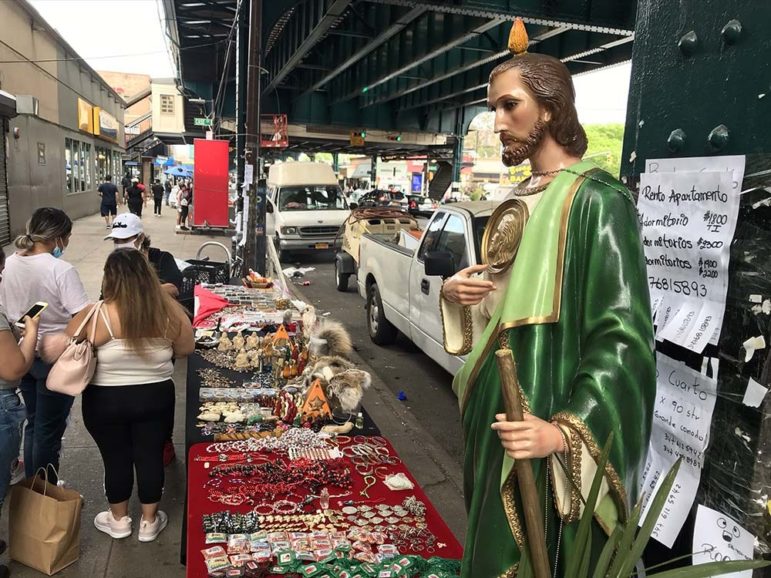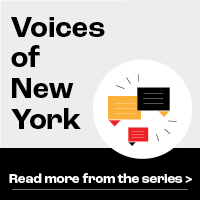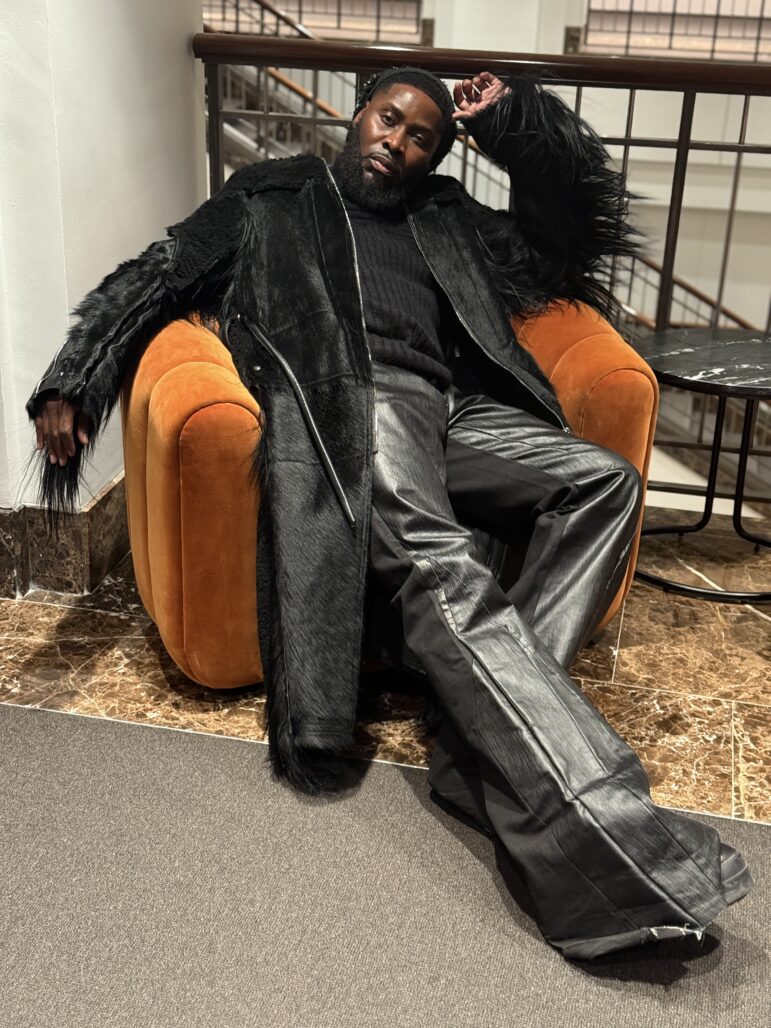Some Queens residents who lost work during the pandemic have taken to selling items.

Javier Castaño/QueensLatino
A table selling religious figurines on Roosevelt Avenue.Read the original story in Spanish at QueensLatino
Translated and condensed by Carlos Rodríguez Martorell
COVID-19 has hit the world hard, and the borough of Queens is no exception. Immigrants have been forced to reinvent themselves to earn a living.
Religious figurines, books, phone accessories, handcrafts, toys, tamales and juices are some of the goods for sale on Roosevelt Avenue and other streets of Queens.
Adelaida de Jesús, a mother of three who sells flowers, explained how her life changed with the onset of the virus: “I suffered a lot because my stepfather died of COVID, and several people in my family caught the virus. On top of that, I had no money. There were people who came by to drop off boxes of food to help me feed my children,” said de Jesús.
“Things are really hard. At first, I would not leave the house out of fear, but you have to press on and provide for your family. I cannot let my kids go hungry, and that is why now I go out and sell flowers every day,” added de Jesús, as she sat in a pick-up truck. Her case is not unique.
The United States has reported more than 5 million cases of the coronavirus and more than 150,000 dead, the country with the highest toll in the world. An added problem is the collapse of the economy, which has left millions out of work across the nation and an unemployment rate of 13 percent.
“The fact that people are staying at home is also affecting the economy,” said Robert J. Shiller, who won the Nobel Prize in Economics in 2003.
This is also Néstor Sánchez’s case. He was fired from his demolition job, so he started selling avocados and face masks on the street. “I was told that there would be no more work available due to the coronavirus, and had no money because I had been working for just two weeks. I was fired, then I stayed at home for four months and the government told us that they would pay our rent, but nothing happened.”
Sánchez described his situation as “very tough.” He added that he would like to return to his home country but does not have enough money to pay for the trip. “I lost my job and all my savings. But I must pay rent, eat and send money to my family,” he said.
A similar situation was described by Marco Antonio, who sells phone accessories. He said that he is afraid of what might happen with the virus. “Businesses are starting to reopen, rents are very high, and lots of people are out of work. I work in the streets, and I am afraid because many of my friends have died,” he said.
The street vendor added that competition in the streets is fierce, and that the owner of the apartment where he lives wants to charge him an extra $50 for late rent payments.
Another example is that of Julio Cesar, who arrived in New York seeking a better life around the time the pandemic began. He is currently selling tech gadgets on the street. “Thank God I found some good people who gave me shelter, and I am now living with them and helping them out. You suffer a lot sometimes when you are selling goods on the street because the economy is really tough now,” he said.
As the economy continues to re-awaken, street vendors – who are mostly immigrants – continue to pursue the elusive “American Dream” in the midst of the pandemic.









